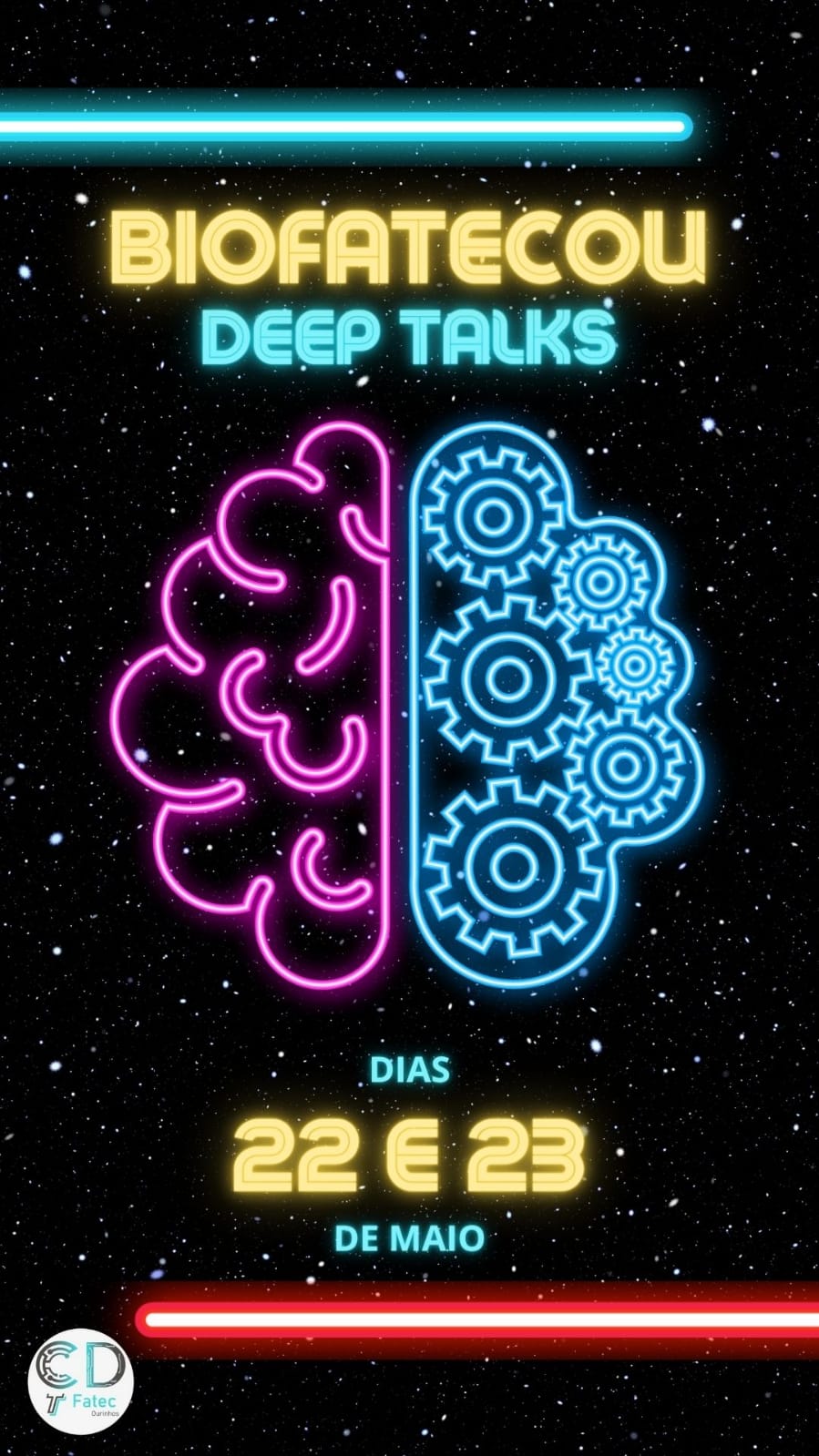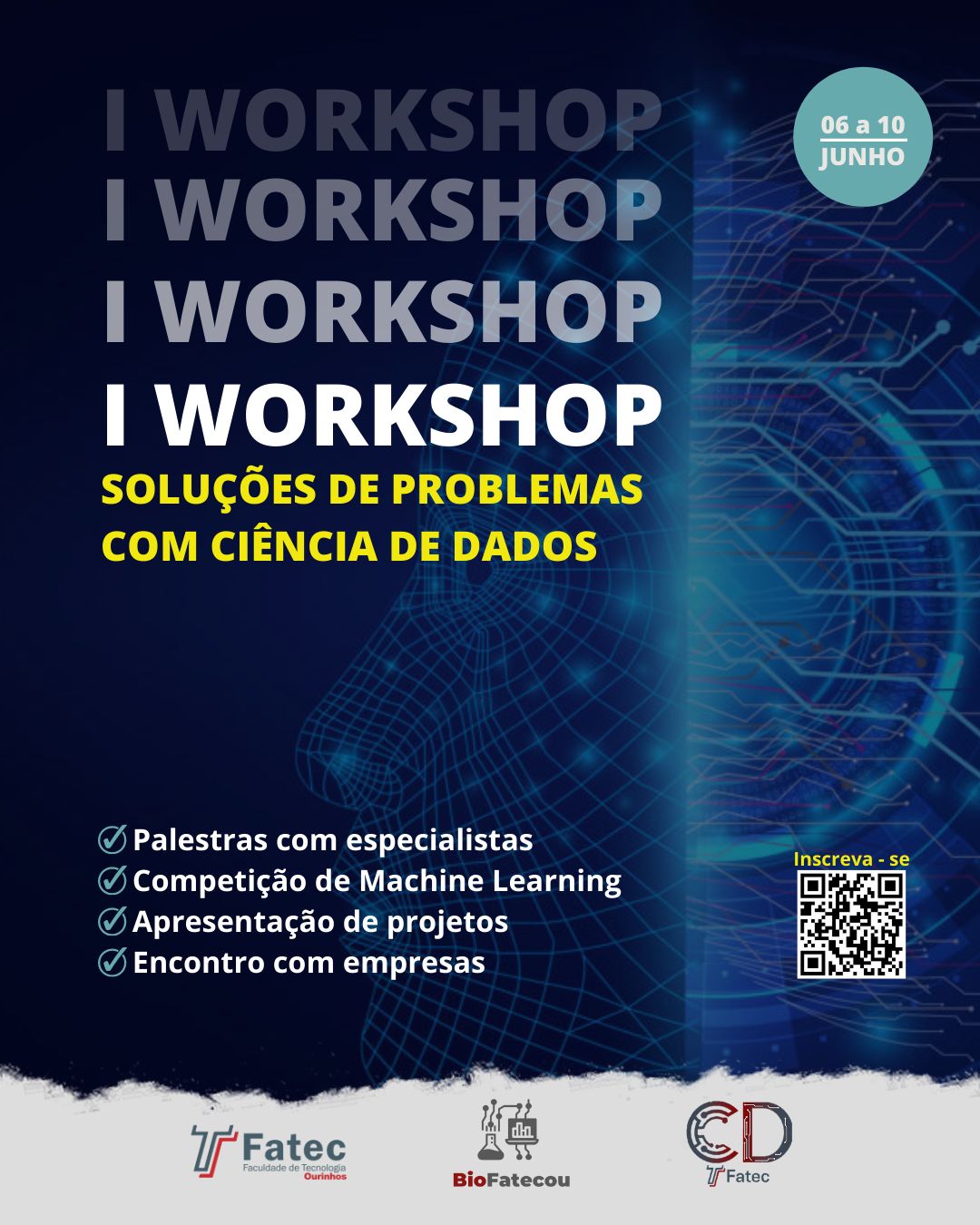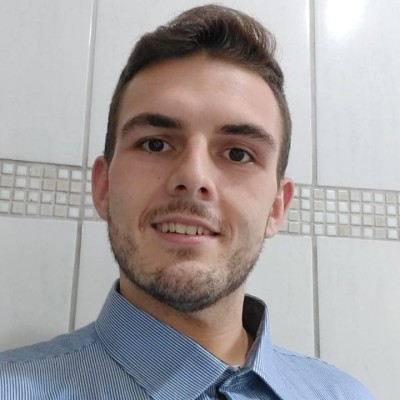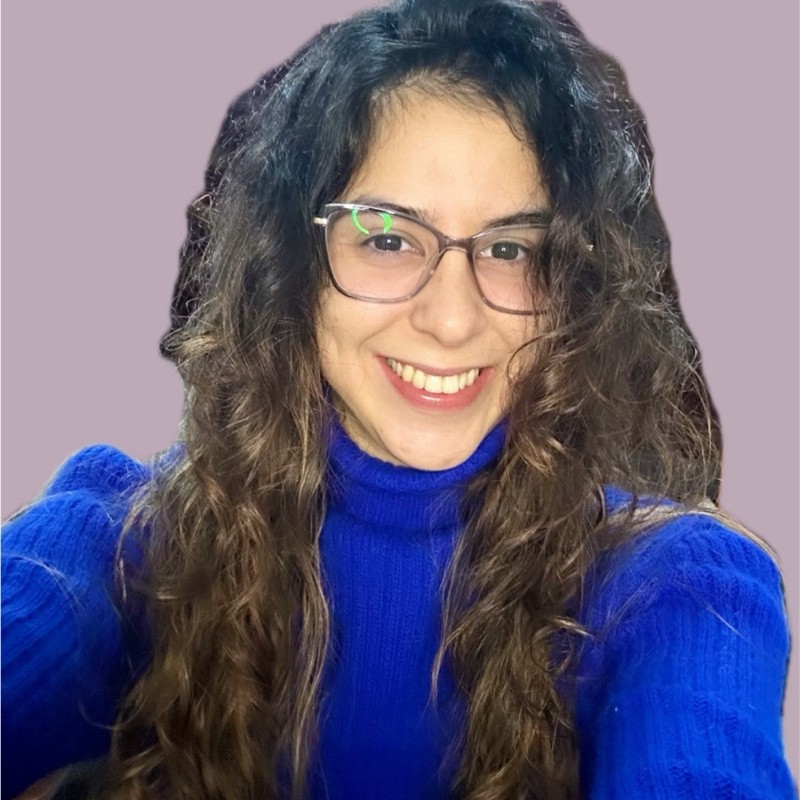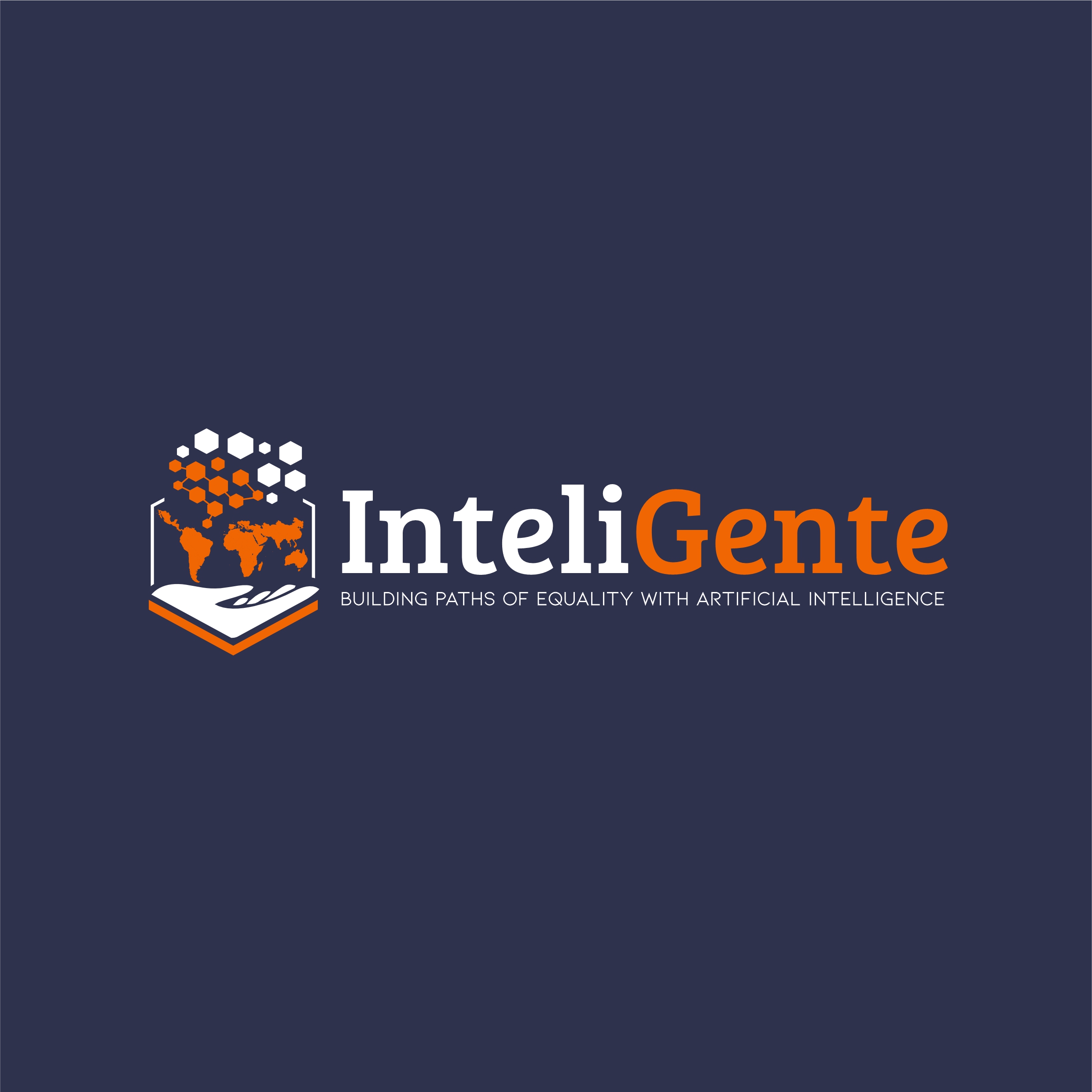About
Who we are
Artificial Intelligence (AI) has enabled the development of innovative solutions in health, agriculture, forensic sciences, and climate change, among others. Advances in all fields of knowledge demonstrate how AI can not only accelerate scientific discoveries and the design of innovative solutions, but also be one of the most valuable tools for improving the quality of life on Earth. However, the development of AI has been concentrated in technologically advanced countries, often overlooking the unique needs and challenges faced by less developed regions, such as the Global South. Therefore, it is essential to ensure an equitable distribution of these benefits. In response to this need, we have created an educational project that empowers students to develop and apply AI solutions with social impact, called InteliGente (Former BioFatecou). In this project, students are encouraged to work on AI solutions that can positively impact society. Thus, during their academic journey, students not only acquire practical and theoretical knowledge but also actively contribute to the democratization of AI, promoting a real and significant impact in underprivileged communities. This program not only strengthens the technical and theoretical learning of the students but also encourages them to create projects that directly benefit the neediest communities. Among the contributions, we can mention:
- Personal and professional development
- Fostering critical thinking, influencing all aspects of their lives
- Interaction with other professionals in the field, promoting networking
- The conscious use and development of responsible AI, positively impacting the lives of those who need its benefits.
The main competencies developed in the project include argumentation, communication, knowledge, empathy, planning, organization, teamwork, responsibility, citizenship, and scientific, critical, and creative thinking. Additionally, InteliGente aims to encourage participants to develop solutions that align with the Sustainable Development Goals (SDGs), such as (SDG 3) Good Health and Well-Being; (SDG 4) Quality Education; (SDG 5) Gender Equality; (SDG 10) Reduced Inequalities; and (SDG 13) Climate Action.
Learn MoreMilestones
Our Impact
Our methodology also aims to democratize AI and ethical education through various materials, including books, games, and card decks, while educating individuals about AI.
Recognition received internationally for our impactful contributions in AI education and social innovation. See our Gallery and News.
Total number of participants who have attended our educational and promotional AI events.
Total number of followers across all our social media platforms, including the project creator’s social media.
Social Media Impressions
132,465+Total number of times our content has been viewed across all our social media platforms. High impressions indicate broad visibility.
Total number of research papers published by our team and collaborators.
Contact us
Check out the amazing achievements of our project! We are achieving significant results and shaping a better future. Let's keep moving forward and making a difference together. Be a part of this positive impact movement - join us now and be a part of the change!
Goals
What are our goals
Ethical Awareness in AI
To contribute to the education of excellent professionals with ethical awareness of AI usage
AI for Good
Educational project that enables students to develop and apply AI solutions with social impact
Competitions and Events
Development of competitions and workshops with the purpose of spreading knowledge about the correct use of AI and its presence in people's daily lives.
Sustainable Development
Encourage the development of solutions that meet the Sustainable Development Goals (SDGs).
Portfolio
What we've done
- All
- Events
- Articles
- Awards/Grants





Our projects have been registered on the QS ImpACT platform. QS ImpACT is a global platform that evaluates and ranks projects based on their social impact. Out of 2600 projects, our projects have achieved an impressive 29th place, standing out for their transformative potential and positive societal impact.

























ÁGUEDA Project (Artificial Intelligence for Early Detection of Breast Cancer), recognized as the best ongoing research project in the field of Exact and Earth Sciences in Brazil for undergraduate scientific initiation by Conic-Semesp (the Largest Scientific Initiation Congress in Brazil), among more than 1,200 registered projects, 2023







Our project, AutoAI-Pandemics, was selected as one of the most promising proposals (a total of 221 proposals from 47 countries following a rigorous review process (142 from Africa, 40 from Asia, 26 from LAC, 12 from MENA)) in a global competition, held by the Global South Artificial Intelligence for Pandemic and Epidemic Preparedness and Response Network - AI4PEP - 2023.


Projects
Our Featured Projects
Awards
Awards and Recognitions
| Award Name | Year |
|---|---|
| Hollie's Hub for Good - DigitalOcean. BioFatecou: Introducing Undergraduates to Academic Research ($2.750,00) | 2023 |
| Ana Clara B. Medeiros et. al, 2nd place at the 1st Cambará Ideas Fair, Grace: Resume Recommendation System with Artificial Intelligence - 1st Cambará Ideas Fair - Norte Pioneiro - Paraná | 2023 |
| Wagner Lopes Cardozo, 3rd place at the 1st Cambará Ideas Fair, Águeda: An Artificial Intelligence for Early Detection of Breast Cancer - 1st Cambará Ideas Fair - Norte Pioneiro - Paraná | 2023 |
| Motion No. 405/2023 (Ourinhos-SP City Council - Brazil) - Congratulations to the students and professors of Fatec Ourinhos for developing the 'ITT – Is That True' app, a platform to combat fake news | 2023 |
| Certificate of excellence for the distinction achieved at Falling Walls Lab Brazil 2023 as Advisor Professor, Faculdade Estadual de Tecnologia de Ourinhos - Fatec | 2023 |
| Finalist Team (Advisor), "Breaking the Wall of Alzheimer’s Detection", Falling Walls Lab Brazil 2023, DWIH São Paulo, Falling Walls Foundation, DAAD, The German Center for Research and Innovation | 2023 |
| Winning Team (Advisor), 1st place, "Breaking the Wall of Fake News", Falling Walls Lab Brazil 2023, DWIH São Paulo, Falling Walls Foundation, DAAD, The German Center for Research and Innovation | 2023 |
| Google Latin America Research Awards (LARA), Google. BioAutoML: Automated Feature Engineering for Classification of Biological Sequences (24 awarded projects, from a base of 700 submissions) | 2021 |
| AutoAI-Pandemics, which was selected as one of the most promising proposals (a total of 221 proposals from 47 countries following a rigorous review process (142 from Africa, 40 from Asia, 26 from LAC, 12 from MENA)) in a global competition, held by the Global South Artificial Intelligence for Pandemic and Epidemic Preparedness and Response Network - AI4PEP | 2023 |
| Helmholtz Visiting Researcher Grant/Award - Helmholtz Information & Data Science Academy (HIDA). Project Title: BioAutoML-Fast: End-to-End Multi-Threaded Machine Learning Package for Life Sciences | 2023 |
| ÁGUEDA Project (Artificial Intelligence for Early Detection of Breast Cancer), recognized as the best ongoing research project in the field of Exact and Earth Sciences in Brazil for undergraduate scientific initiation by Conic-Semesp (the Largest Scientific Initiation Congress in Brazil), among more than 1,200 registered projects | 2023 |
| FEMS Research & Training Grant/Award - Federation of European Microbiological Societies (FEMS) | 2023 |
| Finalist in the Higher Education Category (Among the 10 finalists in the Higher Education Category - 2897 subscribers - BioFatecou Project), Transformer Educator Award - Sebrae, Instituto Significare and Bett Brasil, which aims to select the most transformative projects in Brazil | 2023 |
| Honorable mention to the BioFatecou Project (more than 200 submissions) - 25th edition of the Professor Mário Palmério Top Educational Award - ABMES - Associação Brasileira de Mantenedoras de Ensino Superior - Brasil Elected among the 5 most transformative projects in Brazil | 2023 |
| InteliGente was named the third most transformative educational project in the State of São Paulo (Brazil) by the Transformative Educator Award | 2024 |
| Editor's Choice Article, Entropy. For the paper: "Information Theory for Biological Sequence Classification: A Novel Feature Extraction Technique Based on Tsallis Entropy." Recognized by the journal's Academic Editor as an exceptional contribution to the field. | 2024 |
| BioPrediction - Project selected to participate in Prototypes for Humanity 2023, during COP28-Dubai, chosen from 3000 entries, from more than 100 countries, standing out among the 100 best, Prototypes for Humanity - COP28-Dubai. | 2023 |
| Our BioAutoML project received an honorable mention from the Young Bioinformatics Award 2024, being chosen among the best theses in Bioinformatics and Computational Biology in Brazil. | 2024 |
| Our Student received second place in the Scientific Initiation Competition (SBCAS), being chosen among the best works in computing applied to health in Brazil. | 2024 |
| Our BioAutoML project received third place in the ARTUR ZIVIANI THESIS AWARD (SBCAS), being chosen among the best theses in computing applied to health in Brazil. | 2024 |
F.A.Q
Frequently Asked Questions
-
Empowering Youth for a Better World
InteliGente is a groundbreaking initiative dedicated to integrating AI in education, fostering equity, and customizing learning experiences for diverse student needs. By empowering students to develop AI solutions for societal good, we're advancing education, democratizing AI, and addressing disparities in technology access, particularly in regions like the Global South. InteliGente has been validated at the São Paulo State College of Technology since 2021. In a short period, the project has shown a substantial impact, ranging from innovative projects to awards.
-
Why are we implementing this initiative in the Global South?
Technological advancements in Artificial Intelligence (AI) have benefited our society and economy. However, AI development has been concentrated in technologically advanced countries, often overlooking the unique needs and challenges faced by less developed regions, such as the Global South.
-
Consistency with SDGs
SDG 10: Reduced Inequalities — By focusing on the development of AI in regions that are typically underrepresented in technological advancements, this initiative aligns with targets such as 10.1, 10.2 and 10.3. However, within the initiative, there are solutions that address several SDGs. Furthermore, InteliGente aims to increase the positive impact of AI on sustainable development by empowering students with practical applications of AI for social good and ethical knowledge. InteliGente aligns with regional needs and SDGs by addressing local challenges through culturally sensitive, community-driven AI projects, focusing on health, education, and equality, ensuring impactful and sustainable development.
-
Is this proposal an AI solution?
No, the proposal is an educational initiative utilizing AI, not an AI solution or API itself. It focuses on teaching students to develop AI projects, potentially using foundational models. The innovation lies in applying AI to real-world problems, enhancing learning and societal impact. Furthermore, InteliGente teaches participants several guidelines proposed in the literature as a methodology, such as “How to develop and use AI responsibly”, “AI for all”, “AI4People — Good AI Society”, “Ethics of AI (UNESCO)”, among others. We also adopt the principles of Data-Centric AI (DCAI), putting data at the heart of an AI system development process. We also applied the FAIR data principles, guidelines to improve the Findability, Accessibility, Interoperability, and Reuse of data, aiding scientific advancement and promoting.
-
Do we have collaborations?
InteliGente is integrated with the AutoAI-Pandemics hub (http://autoaipandemics.icmc.usp.br/) and the AI4PEP network (https://ai4pep.org/), which is an international partnership covering 16 nations of the Global South, including five African countries, four Asian countries, four from the Middle East and North Africa, and three from Latin America.
-
Methodology
To ensure an ongoing and accessible opportunity for participation, registrations for the project are open every semester. This allows for the formation of at least two new groups annually, providing a constant window for interested parties. This regular approach to registration ensures that more students can benefit from the initiative, aligning with the goal of promoting inclusive and continuous education. Thus, upon joining, students have the opportunity to conduct a project/study over up to 18 months in teams. To develop critical thinking, the project will use active methodologies, such as Problem-Based Learning (PBL). Essentially, the project proposes three phases, each lasting six months. This division ensures that students are engaged in a complete cycle of learning, research, and extension, providing a comprehensive educational experience, forming not only qualified professionals but also citizens prepared to contribute positively to society. In summary, in the first phase (Teaching), students are prepared and instructed to understand basic concepts of AI and its responsible and conscious use through study materials, along with discussions with a mediator and peers. At this stage, students are encouraged to identify relevant problems in society that can be solved with AI, such as the Sustainable Development Goals. With the problem selected, another stage of studies and discussions about the theme begins, aiming to refine the focus of the subject and develop the students' skills in argumentation, communication, knowledge, planning, organization, and group work. At the end of this first stage, the group must present answers to various questions, in addition to responding to questions posed by the mediator and peers. In the second phase (Research), the groups dedicate most of their time to studying the implementation of their solutions, learning objectives, and the initial prototyping of the project, with weekly/biweekly discussions with the mediator and peers. This stage promotes a deeper immersion in research, encouraging students to explore and apply theoretical knowledge in practice, as well as developing skills in analysis and problem-solving. In the third phase (Extension), the groups finalize the implementation of the proposed solution and prepare a general presentation of the project, including storytelling and an extended summary/report. At this point, the groups are also encouraged to participate in idea competitions, events, conferences, and community activities to promote the project and connect with other professionals in the field, encouraging networking. Finally, the groups are expected to make the solutions freely available to the public. If the group wishes to start a startup, the students are guided to study theories on how to expand such innovations, seeking to understand which factors influence the adoption of new ideas, such as relative advantage, compatibility, complexity, trialability, and observability.
-
Results
A list of results and projects can be viewed in the Gallery and News section.
-
How to Apply the Same Methodology to My Project?
For a better understanding, we have an article published at the following link: InteliGente (Former BioFatecou) - Article.
However, you can also contact us via email: rpbonidia@gmail.com. -
Is the proposal profitable?
The proposal's profitability lies in forming socially conscious citizens, valuing societal impact and ethical education over financial gain, thus redefining success through community betterment and responsible AI use.
-
Our main articles
16-[Link][Book] CARVALHO, A. C. P. L. F.; MENEZES, A. G.; BONIDIA, R. P. Ciência de Dados - Fundamentos e Aplicações. 1. ed. LTC - Grupo Gen, 2024. v. 1. 376p. 15-[Link][Conference] BONIDIA, Robson Parmezan; CARVALHO, André Carlos Ponce de Leon Ferreira de. BioAutoML: Democratizing Machine Learning in Life Sciences. In: PRÊMIO ARTUR ZIVIANI - CONCURSO DE TESES E DISSERTAÇÕES (DOUTORADO) - SIMPÓSIO BRASILEIRO DE COMPUTAÇÃO APLICADA À SAÚDE (SBCAS), 24. , 2024, Goiânia/GO. Anais [...]. Porto Alegre: Sociedade Brasileira de Computação, 2024 . p. 85-90. ISSN 2763-8987. 14-[Link][Conference] FLORENTINO, Bruno R.; BONIDIA, Robson P.; CARVALHO, André C. P. L. F. de. Breaking Barriers: Democratizing Machine Learning for RNA-Protein Interaction Prediction in Life Sciences. In: CONCURSO DE TRABALHOS DE INICIAÇÃO CIENTÍFICA - SIMPÓSIO BRASILEIRO DE COMPUTAÇÃO APLICADA À SAÚDE (SBCAS), 24. , 2024, Goiânia/GO. Anais [...]. Porto Alegre: Sociedade Brasileira de Computação, 2024 . p. 7-12. ISSN 2763-8987. 13-[Link][IF 2022: 6.000] Florentino, B. R., Bonidia, R. P., Sanches, N. H., da Rocha, U. N., & de Carvalho, A. C. BioPrediction-RPI: Democratizing the Prediction of Interaction Between Non-Coding RNA and Protein with End-to-End Machine Learning. Computational and Structural Biotechnology Journal, 2024. 12-[Link][IF 2022: 4.100] AVILA SANTOS, ANDERSON P.; DE ALMEIDA, BRENO L. S.; BONIDIA, ROBSON P.; STADLER, PETER F.; STEFANIC, POLONCA; MANDIC-MULEC, INES; ROCHA, ULISSES; SANCHES, DANILO S.; DE CARVALHO, ANDRÉ C.P.L.F. BioDeepfuse: a hybrid deep learning approach with integrated feature extraction techniques for enhanced non-coding RNA classification. Rna Biology, v. 21, p. 1-12, 2024. 11-[Link][Conference] MEDEIROS, A. C. B.; FRANCISCON, J. F. V.; LONGO, J. B. P.; MORAES, M. V. R.; MACEDO, M. O.; BONIDIA, R. P. Grace: Sistema de Recomendação de Currículos com Inteligência Artificial. In: Workshop de Trabalhos de Alunos da Graduação (WTAG) - SIMPÓSIO BRASILEIRO DE BANCO DE DADOS (SBBD), 2023, Belo Horizonte - MG. Workshop de Trabalhos de Alunos da Graduação (WTAG), 2023. p. 8-14. 10-[Link][Conference] BERNARDES, D. R.; FRANCISCON, J. F. V.; ARAUJO, F. R.; OLIVEIRA, M. P.; BONIDIA, R. P. Predizendo os Vencedores dos Playoffs: Um Estudo de Caso com Aprendizado de Máquina em Partidas de Futebol Americano. In: Workshop de Trabalhos de Alunos da Graduação (WTAG) - SIMPÓSIO BRASILEIRO DE BANCO DE DADOS (SBBD), 2023, Belo Horizonte - MG. Workshop de Trabalhos de Alunos da Graduação (WTAG), 2023. p. 22-28. 9-[Link][Conference] CARDOZO, W. L.; PRADO, R. C.; BONIDIA, ROBSON P. Águeda: Uma Inteligência Artificial para Detecção Precoce do Câncer de Mama. In: 23 Congresso Nacional de Iniciação Científica - CONIC-SEMESP, 2023, Online. Anais CONIC-SEMESP, 2023. p. 1-6. 8-[Link][Conference] BONIDIA, R. P.; SANTOS, A. P. A.; ALMEIDA, B. L. S.; STADLER, P.; ROCHA, U. N.; SANCHES, D. S.; CARVALHO, A. C. P. L. F. BioAutoML: End-to-End Machine Learning Package for Life Sciences. In: 10th FEMS Congress of European Microbiologists, 2023, Hamburg - Germany. 10th FEMS Congress of European Microbiologists, 2023. 7-[Link][Conference] FLORENTINO, B. R.; SANCHES, N. H.; BONIDIA, R. P.; DE CARVALHO, ANDRÉ C. P. L. F. BioPrediction: Democratizing Machine Learning in the Study of Molecular Interactions. In: XX Encontro Nacional de Inteligência Artificial e Computacional, 2023, Belo Horizonte - MG. Anais do XX Encontro Nacional de Inteligência Artificial e Computacional, 2023. p. 525-539. 6-[Link][IF 2021: 13.994] BONIDIA, ROBSON P; SANTOS, ANDERSON P AVILA; DE ALMEIDA, BRENO L S; STADLER, PETER F; DA ROCHA, ULISSES N; SANCHES, DANILO S; DE CARVALHO, ANDRÉ C P L F. BioAutoML: automated feature engineering and metalearning to predict noncoding RNAs in bacteria. Briefings in Bioinformatics, v. 1, p. 1-13, 2022. 5-[Link][IF 2021: 2.738] BONIDIA, ROBSON P; SANTOS, ANDERSON P AVILA; DE ALMEIDA, BRENO L S; STADLER, PETER F; DA ROCHA, ULISSES N; SANCHES, DANILO S; DE CARVALHO, ANDRÉ C P L F. Information Theory for Biological Sequence Classification: A Novel Feature Extraction Technique Based on Tsallis Entropy. Entropy, v. 24, p. 1398, 2022. 4-[Link][IF 2021: 13.994] BONIDIA, ROBSON P; DOMINGUES, DOUGLAS S; SANCHES, DANILO S; DE CARVALHO, ANDRÉ C P L F. MathFeature: feature extraction package for DNA, RNA and protein sequences based on mathematical descriptors. Briefings in Bioinformatics, v. 1, p. 1-10, 2022. 3-[Link][IF 2020: 11.622] BONIDIA, ROBSON P; SAMPAIO, LUCAS D H; DOMINGUES, DOUGLAS S; PASCHOAL, ALEXANDRE R; LOPES, FABRÍCIO M; DE CARVALHO, ANDRÉ C P L F; SANCHES, DANILO S. Feature extraction approaches for biological sequences: a comparative study of mathematical features. Briefings in Bioinformatics, v. 00, p. 1-20, 2021. 2-[Link][IF 2020: 16.971]ALKHNBASHI, OMER S; MITROFANOV, ALEXANDER; BONIDIA, ROBSON; RADEN, MARTIN; TRAN, VAN DINH; EGGENHOFER, FLORIAN; SHAH, SHIRAZ A; ÖZTÜRK, EKREM; PADILHA, VICTOR A; SANCHES, DANILO S; DE CARVALHO, ANDRÉ C P L F; BACKOFEN, ROLF. CRISPRloci:comprehensive and accurate annotation of CRISPR-Cas systems. NUCLEIC ACIDS RESEARCH, v. 1, p. gkab456, 2021. 1-[Link][IF 2019: 3.745] BONIDIA, ROBSON P.; MACHIDA, JAQUELINE SAYURI; NEGRI, TATIANNE C.; ALVES, WONDER A. L.; KASHIWABARA, ANDRE Y.; DOMINGUES, DOUGLAS S.; DE CARVALHO, ANDRE C.P.L.F.; PASCHOAL, ALEXANDRE R.; SANCHES, DANILO S. A Novel Decomposing Model with Evolutionary Algorithms for Feature Selection in Long Non-Coding RNAs. IEEE Access, v. 1, p. 1-15, 2020.
Contact
Contact Us
Location:
Online
Email-1:
rpbonidia@gmail.com
Email-2:
bonidia@utfpr.edu.br


































